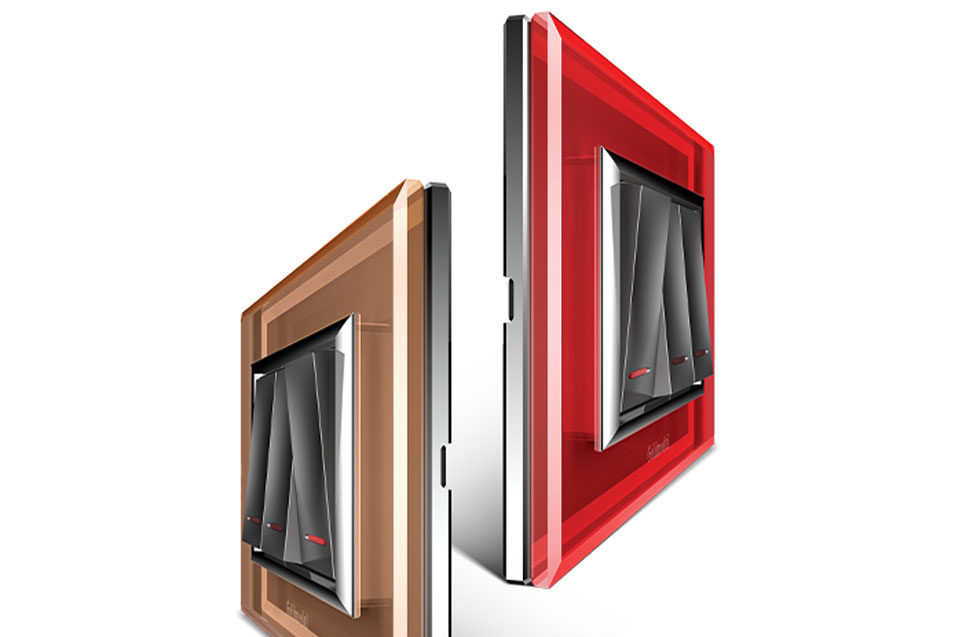
Difference between 3 Star, 4 Star and 5 Star Electrical appliances
18th July 2024 | Written By: Vinod Pottayil | Read Time: 3min | Last Updated: 11th September 2024
When you’re out shopping for electrical appliances, you often come across the Energy Star rating displayed on these appliances. What really are these Star Ratings and how are they calculated? What is the difference between the Star Ratings and how do we use them to influence our buying decisions? In this blog article, we help you unravel the mysteries of the Stars (electrical, of course).
Energy Star ratings are energy performance standards laid down by the (BEE) Bureau of Energy Efficiency ratings indicate the energy efficiency of the appliance, with higher star ratings indicating greater energy efficiency and potential savings on electricity bills over time. The Star Rating is derived from the Rating Parameter for the appliance and its value. The Rating Parameter defines the criteria by which a particular appliance’s energy efficiency is measured, and the values for these parameters. Each appliance has its own unique Rating Parameter by which its efficiency is measured. The threshold values define whether it is rated 3 Star, 4 Star and 5 Star.
Also Read: What is BEE Star Rating?
Here’s a breakdown of what each star rating typically signifies:
3-Star Electrical Appliances
- Moderate Efficiency: Appliances with a 3-star rating are moderately energy-efficient.
- Savings: They offer some energy savings compared to lower-rated appliances.
- Suitability: Suitable for consumers looking for a balance between cost and energy efficiency.
| Appliance | Rating Parameter | Value* | Star Rating |
|---|---|---|---|
| Ceiling fan | Service Value | >= 5.0 to < 5.5 | 3 |
| Water heater (6 L) | Standard loss | <= 0.352 and > 0.320 | 3 |
| Air conditioner | Indian Seasonal Energy Efficiency Ratio | 3.8-4.39 | 3 |
| Refrigerator | Comparative Energy Consumption | 0.146*V + 127 – 0.183*V +159 | 3 |
| Washing machine | Energy Consumption (E) per cycle Kilowatt-hour/kg/cycle | 0.11 < E <= 0.14 | 3 |
| Microwave | Energy Consumption per cooking cycle (E) Watt-hour | 48 < E <= 52 | 3 |
4-Star Electrical Appliances
- Good Efficiency: Appliances with a 4-star rating are more energy-efficient than 3-star appliances.
- Enhanced Savings: They provide better energy savings and reduced electricity consumption.
- Recommendation: Recommended for consumers who prioritise energy efficiency and are willing to invest a bit more upfront for long-term savings.
| Appliance | Rating Parameter | Value | Star Rating |
|---|---|---|---|
| Ceiling fan | Service value | >= 5.5 to < 6.0 | 4 |
| Water heater (6 L) | Standard loss | <= 0.320 and > 0.291 | 4 |
| Air conditioner | Indian Seasonal Energy Efficiency Ratio | 4.4 – 4.99 | 4 |
| Refrigerator | Comparative Energy Consumption | 0.117*V + 102 – 0.146*V + 127 | 4 |
| Washing machine | Energy Consumption (E) per cycle Kilowatt-hour/kg/cycle | 0.09 < E <= 0.11 | 4 |
| Microwave | Energy Consumption per cooking cycle (E) Watt-hour | 44 < E <= 48 | 4 |
5-Star Electrical Appliances
- High Efficiency: Appliances with a 5-star rating are highly energy-efficient.
- Maximum Savings: They offer the highest energy savings and lowest electricity consumption.
- Ideal Choice: Ideal for environmentally conscious consumers and those looking to minimize energy bills significantly.
| Appliance | Rating Parameter | Value | Star Rating |
|---|---|---|---|
| Ceiling fan | Service value | >= 6.0 | 5 |
| Water heater (6 L) | Standard loss | <= 0.291 | 5 |
| Air conditioner | Indian Seasonal Energy Efficiency Ratio | 5.0 | 5 |
| Refrigerator | Comparative Energy Consumption | 0.117*V + 102 | 5 |
| Washing machine | Energy Consumption (E) per cycle Kilowatt-hour/kg/cycle | E <= 0.09 | 5 |
| Microwave | Energy Consumption per cooking cycle (E) Watt-hour | E <= 44 | 5 |
Difference Between 3-Star and 5-Star Appliances
The difference between 3-star and 5-star appliances can be determined by their energy efficiency and the amount of money you save on your electricity bill every year. In terms of money, the difference between 3-star and 5-star appliances is its effect on the monthly electric bill. For example, if the monthly bill of a 3-star rated fan is Rs.85, a 5-star fan will result in an electricity bill of Rs.60, considering that all variables remain constant. As a result, the overall cost of a 5-star rated fan is less in the long run than that of a 3-star rated fan.
Difference Between 4-Star and 5-Star Appliances
The difference between 4-star and 5-star appliances is that a 5-star-rated appliance is 10 to 15% more energy efficient than the latter. This may not sound like a big deal right now; however, you will be stunned when you see the results on your electricity bill. There is no doubt that 4 and 5-star rated appliances are much more energy efficient compared to those with 1 or 3-star ratings. But, the difference between 4-star and 5-star rated appliances can also impact your electricity bill. For example, if the monthly bill of a 4-star-rated fan is Rs.75, a 5-star fan will result in an electricity bill of Rs.60, considering that all variables remain constant. Even though 5-star-rated appliances may be more pricey than 4-star-rated ones,their energy efficiency and impact on your electricity bill, in the long run, will make it all worth it.
Key Considerations When Choosing:
- Cost vs. Savings: Higher star-rated appliances typically come with a higher upfront cost but can save money in the long run through reduced energy bills.
- Environmental Impact: Opting for more energy-efficient appliances helps reduce carbon footprint and conserve natural resources.
- Usage Pattern: Consider your usage habits and the expected lifespan of the appliance to determine the overall savings potential.
Conclusion
Choosing between 3-star, 4-star, and 5-star electrical appliances depends on your budget, energy-saving goals, and long-term sustainability considerations. A higher Star Rating usually comes with a higher price premium. By understanding these differences, you can make a well-informed decision that suits your needs and preferences. Appliances from reputed manufacturers with higher Star Ratings are a good long term investment, and save you money in the long run. Choose your Stars wisely.





